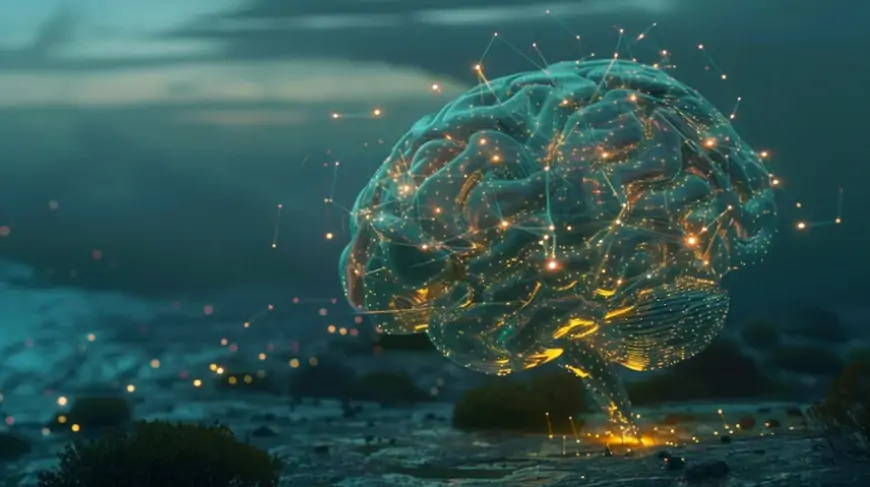Highlighting Claude 3.5 sonnet as the AI to focus on, not ChatGPT-4: A rewording
Discover the best generative AI for your needs—whether coding, image transcription, or creative writing—considering strengths, interaction style, and task requirements.

The launch of Claude 3.5 Sonnet represents a significant advancement in the realm of large language models (LLMs) – emerging as a noteworthy contender that demands closer attention. While many headlines rightfully focus on OpenAI and Sam Altman, recognizing ChatGPT's pioneering status, Claude 3.5 Sonnet offers a fresh perspective in the AI landscape. Users familiar with ChatGPT may find Claude 3.5 Sonnet a compelling alternative, heralded for its capabilities since its recent debut. For instance, AI advocate Alfaiz Ali recently praised Sonnet for surpassing GPT-4o within just 24 hours of its release. Ali's discussion highlights Sonnet's diverse abilities, such as app development and animated explanations of complex technical concepts like backpropagation.
Competitive edge: Benchmark performance of Claude 3.5 Sonnet
Claude 3.5 Sonnet demonstrates superior performance on various benchmarks compared to its competitors. Anthropic reports that Sonnet operates at double the speed and one-fifth the cost of its predecessor, Claude 3 Opus. It excels in graduate-level reasoning and undergraduate-level knowledge assessments, and it also excels in visual tasks such as interpreting charts, graphs, and transcribing text from imperfect images.
Claude 3.5 Sonnet introduces "Artifacts," allowing users to prompt the system to generate a wide array of content, including documents, code, and visual representations like mermaid diagrams and vector graphics. It even extends its capabilities to creating simple games. Artifacts enables real-time viewing and iterative refinement alongside user dialogue through a side-by-side display, enhancing the usability of AI-generated content.
Programming, context, and comedy in Claude 3.5 Sonnet
Claude 3.5 Sonnet is earning praise for its coding capabilities, generating fully functional and feature-rich games from detailed prompts. Its proficiency in integrating graphical interfaces and visual cues showcases its programming prowess.
Both Claude 3.5 Sonnet and ChatGPT-4o excel creatively but in different ways. Claude 3.5 Sonnet demonstrates a nuanced grasp of humor and context, producing engaging and genuinely funny stories. It seamlessly embeds humor into narratives, offering a cohesive and enjoyable reading experience.
In contrast, while ChatGPT-4o is adept at creating coherent stories, its content can sometimes feel more scripted and less naturally humorous. However, ChatGPT-4o shines with its poetic responses, often delivering artistically refined outputs more consistently than Claude.
Security and privacy protocols for Claude 3.5 Sonnet
Anthropic has transparently stated that its generative models, including Claude 3.5 Sonnet, are not trained on user-submitted data without explicit consent. To enhance security, Claude 3.5 Sonnet undergoes rigorous testing by external experts like the UK’s Artificial Intelligence Safety Institute (UK AISI) to prevent misuse and fortify its security measures before deployment.
The company has also solicited feedback from policy experts, including child safety advisors at Thorn, to refine classifiers and optimize model performance effectively. Currently, Claude 3.5 Sonnet lacks the capability to handle voice or audio queries. However, for text-based tasks and coding assistance, benchmark assessments indicate that Claude competes favorably with GPT-4o.
Looking forward, Anthropic plans to expand the Claude 3.5 series with upcoming releases such as Claude 3.5 Haiku and Claude 3.5 Opus, introducing features like Memory to enhance user interaction history, akin to recent upgrades seen in ChatGPT.
Claude 3.5 Sonnet vs. ChatGPT-4o
When determining the most suitable generative AI, it's crucial to acknowledge that each model has distinct strengths and weaknesses, making the choice dependent on your specific task requirements. Factors such as coding assistance, image transcription, visual creation, and creative writing play significant roles in your decision.
Additionally, your preferred interaction style and personality type are crucial in identifying the best fit. For instance, OpenAI’s ChatGPT-4o excels in providing detailed responses to complex inquiries, while Anthropic’s Claude takes a more conversational approach, engaging users with follow-up questions and references to sources.
Choosing an AI model shouldn't be likened to selecting a sports team to support; there's no single perfect AI model for all purposes. Embrace the diversity of options available and avoid making a binary decision between Claude 3.5 and ChatGPT-4o.












































